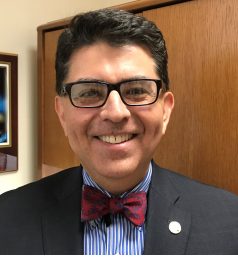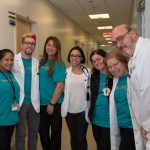President’s Column: Problem Solving for Patients
By Guillermo G. Martinez-Torres, MD, FCAP
It all started in a coroner’s office. Early in my development I was exposed to autopsies, and I was fascinated. My curiosity and my penchant for problem solving lured me to the House of Medicine.

Guillermo G. Martinez-Torres, MD, FCAP
I am often asked why I chose pathology. It is a seemingly simple question, but the answer may be complex. On the journey to pathology, we draw inspiration from diverse experiences, various medical school environments, or perhaps from a practitioner whom we admired.
As the first person in my family to become a physician—or for that matter, a health care professional of any kind—I drew my inspiration in the coroner’s office and was attracted to medicine. Early on, I realized that in determining a cause of death, pathologists assemble complex puzzles.
With pathology as my goal, I took full advantage of the curriculum at the University of Illinois College of Medicine. I got a little sidetracked when my academic advisor, the chairman of surgery, took me under his wing and convinced me that I should be a surgeon. He was convincing enough that I started a general surgery residency after graduation.
During my internship I realized that pathology was not only my first love, it was also my calling. I then went to the University of California Davis for my pathology residency and fellowship. I feel that my year of surgery only served to enhance my abilities as a pathologist.
Like many of you, I am a (compulsive) problem solver at heart, constantly finding intellectual stimulation in every single case. At the same time, I have learned that you don’t see a problem on a slide; you see a patient.
I believe that you and I went into medicine to make a difference, to help save lives, to treat disease, and to help people become whole again. Together, we can and should be proud of our work in the laboratory and in the health care community at large.
The CAP Foundation provides opportunities for leadership and mentorship. Help me spread the word about the foundation’s good work. Apply for a grant to lead a See, Test & Treat program in your institution. Encourage a medical student to consider going into pathology. Or make a donation to help further our mission.
We pathologists play a critical role in the health care team. My early days in the coroner’s office taught me that we play an important role, not only in society, but in the entire health care community.


